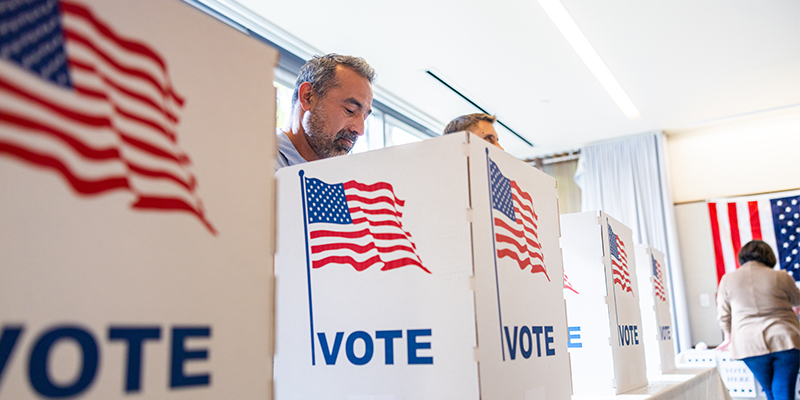U.S. citizens will go to the polls on Nov. 5 to cast their votes in the 2024 election at each level of government. The outcome of this election may have an impact on the policies affecting commercial real estate, the economy, communities and families. At the state level, 44 states will hold elections for representatives within their state legislature. The significance of the outcomes of these state elections cannot be overlooked in setting policy for the commercial real estate industry.
There are 5,808 state legislative seats up for election in November, according to the National Conference of State Legislatures (NCSL). This equates to 78% of all legislative seats. Therefore, these elections should not be overlooked in setting state policies that Impact the commercial real estate industry.
According to the NCSL, Republicans currently hold 4,023 out 7,386 legislative seats and control 58 of 98 legislative chambers. Republicans control both legislative chambers in 29 states compared to 19 states by the Democrats with a divided legislature. There are also states where one political party holds both legislative chambers and governorship, also known as the trifecta of government. The pre-election trifecta is 23 Republicans and 16 Democrats with 10 divided state governments.
The national media often focuses on the presidential election and the balance of power on Capitol Hill, but both political parties recognize the significance of state legislative races. They are actively engaged in protecting and advancing their position within state legislative chambers, particularly in states where one political party holds a narrow advantage over the other. This is reflected in Arizona being targeted by both political parties because Republicans hold a slim two-seat advantage in both the House and Senate.
The political arms of both parties have committed resources to advance their position within state legislatures. The Republican State Leadership Committee has recently launched a campaign in battleground states such as Arizona and Wisconsin. The paid media initiative will target specific state legislators in “bellwether” districts.
The Democratic Legislative Campaign Committee (DLCC) has also initiative a similar campaign in key legislative races. However, there is growing concern with the DLCC, as outlined in a recently released memo, regarding the importance of not taking elections for granted by not voting for down-ballot elections for state office. The memo outlines this as “ballot roll-off.” The DLCC’s concern is that voters will focus on the presidential and congressional elections without casting their vote for candidates and other ballot initiatives further down the ballot.
Both political parties will continue to focus resources on protecting, expanding, and potentially overturning the balance of legislative power within state capitols with narrow majorities. The outcome of these elections will certainly impact areas of importance to the commercial real estate industry. These areas include tax policy, economic growth, job creation, building performance initiatives and community development.
Irrespective of the results on election day, NAIOP chapters and its members must remain engaged in the legislative process from the ballot box to the implementation of policies. State lawmakers of both political parties will continue to debate and enact legislation affecting the commercial real estate industry. NAIOP’s advocacy within state capitols is pivotal in ensuring the interests of commercial real estate are taken into consideration in these policy debates.








